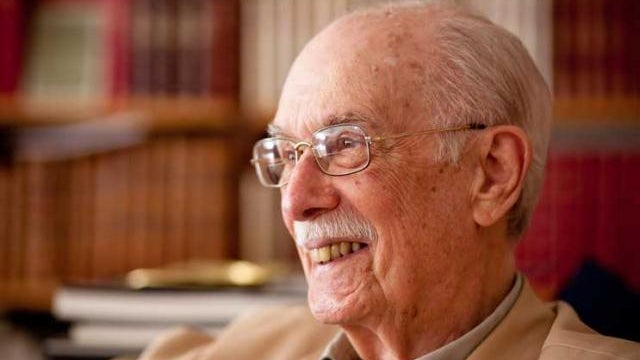ANTONIO CANDIDO, ONE OF A KIND
The death, at the age of ninety-eight, of the Brazilian intellectual, Antonio Candido (Antonio Candido de Mello e Souza), widely known and honored for his masterful book Formação da Literatura Brasileira (1959), along with many other landmark contributions to Brazilian scholarship, brought me back to thoughts of the times our paths crossed nearly fifty years ago.
Antonio Candido was a legend in Brazil when I first met him in 1969. The Faculdade de Filosofia, Letras e Ciências Humanas of the University of São Paulo, had recently been moved, lock, stock, and barrel from it ancient seat in the bairro of Higienópolis out to the so-called "galinheiros" (chicken coops) at the Cidade Universitária in Butantã (yes, the same Butantã famous for its national snake and reptile farm). As it happened, Antonio Candido’s Departamento de Teoria Literária e Literatura Comparada, comprised then of himself and a junior instructor (João Alexandre, as I recall), happened to be housed next door to that of the English department where I was serving as Visiting Fulbright Professor of (North) American literature (June 1969-December 1970). It was likely that I would see him occasionally and it was so. Meeting in the hall, we would exchange hellos of recognition and on my part, of respect and admiration. Stories about him abounded. How when he arrived at Yale University as a visiting professor it is said that he offered to give his lectures in Portuguese, French or English. How he had just returned to Brazil, having turned down an offer of tenure for Yale University, giving as his reason that his country, in the hands of the military, needed him; how he was expecting any day to be "cassado"—deprived permanently of his university position and of his political rights, something that didn’t happen to Antonio Candido when the sitting President Artur da Costa e Silva suffered a disabling stroke that summer.
I was privileged to serve on a doctoral defense committee for Oneida Barboza (one of my colleagues teaching English, and whose advisor was Antonio Candido. Before any questions were asked, Antonio Candido said that as a young man he had listed the projects he hoped to complete during his scholarly career, discovering as he went along that he would never get through the list, but in this case a student of his, he was happy to say, had tackled one of the projected tasks on his list and had done it brilliantly. The topic Oneida had brought to completion was a study of Byronism in Brazil. When I left Brazil in December 1970, I searched through my books for a suitable gift to Antonio Candido. I settled on the writings of William James, which he accepted with his customary grace. Later on I learned that when in due course the military dictators awarded him a state-sponsored prize, he refused it (and the money that went with it), saying that he could not accept a prize sponsored by the government then running the country.
I never saw him after 1970, and I have never forgotten him.
-.-.-.-.-.-.-.-.-.-.-.-.-.-.-.-.-.-.-.-.-.-.-.-.-.-.-.-.-.-.-.-
About George Monteiro:
Earned his A.B. and Ph.D. at Brown University, and his A.M. at Columbia University. His faculty appointments include Emeritus Professor of English and Adjunct Professor of Portuguese at Brown University. He received an honorary D.H.L. from the University of Massachusetts Dartmouth, and is a member of the Order of Prince Henry the Navigator with the grade of Commander. He is authored numerous books on American and Portuguese writers.




